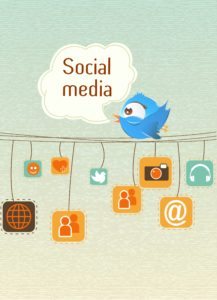Quick links, bringing you great articles on writing from all over the web.
I write because I love stories and find the act of writing to be very satisfying. It is not, unfortunitly, how I pay the bills and I doubt will ever be. I am ok with that. But if you are looking to make any money from your writing, you need to be able to market effectively. (what a totally cool name!), at Self-Publishing School has a great overview of book marketing!
~ * ~
Book Marketing: How to Skyrocket Sales of Your Book
by
 Just because you wrote a new book doesn’t mean that your book is guaranteed to sell. Even if it’s the next Great American Novel, it won’t be a success if it doesn’t get into the collective conscious of the public. This is why your book needs good marketing tactics to back it up.
Just because you wrote a new book doesn’t mean that your book is guaranteed to sell. Even if it’s the next Great American Novel, it won’t be a success if it doesn’t get into the collective conscious of the public. This is why your book needs good marketing tactics to back it up.
Marketing takes planning, organization, and consistent action; it’s hard work. But the good news is that marketing is also about fostering connections and relationships, which can be rewarding to you and your fan base. And since you’re the one who knows your book from cover to cover, your backstory, your reasons for writing it, and who your ideal reader is, it’s your duty to put a plan in place to best connect with your intended audience and share your story.
We know, we know…you’ve put a ton of effort into writing, editing, and getting your book ready for publication that the thought of adding another layer of “work” is not the most appealing idea.
But realize that if you launch your book without a marketing plan, FAR fewer people will read it. It will hamper the success of the book you’re working on now, as well as others you plan on publishing in the future. So if you dream of becoming a New York Times bestselling author, or if you want your book to help you reach other lifestyle goals, a book marketing strategy is your essential key to success.
Read the full post on Self-Publishing School!

 by Carolyn Howard-Johnson
by Carolyn Howard-Johnson  by Dean Wesley Smith
by Dean Wesley Smith Many readers do not have the time to read everything. The world moves quickly and people have short attention spans. People become bored at a frightening rate.
Many readers do not have the time to read everything. The world moves quickly and people have short attention spans. People become bored at a frightening rate.
 by
by  5 Things Indie Authors Need to Consider Before Giving Up
5 Things Indie Authors Need to Consider Before Giving Up You’re
You’re  by Angela Ackerman
by Angela Ackerman Okay, so your single book story jumped to an idea for a nifty book series but … now what?
Okay, so your single book story jumped to an idea for a nifty book series but … now what?
 Welcome Ginger Monette who is here to show us how to build an author platform and send your book off with a bang!
Welcome Ginger Monette who is here to show us how to build an author platform and send your book off with a bang! By Gabriela Pereira
By Gabriela Pereira As some folks know, I spent my misguided youth—all right, all right, my misguided middle age—as a copywriter. Which means that writing blurbs for my books was a piece of cake, right?
As some folks know, I spent my misguided youth—all right, all right, my misguided middle age—as a copywriter. Which means that writing blurbs for my books was a piece of cake, right?